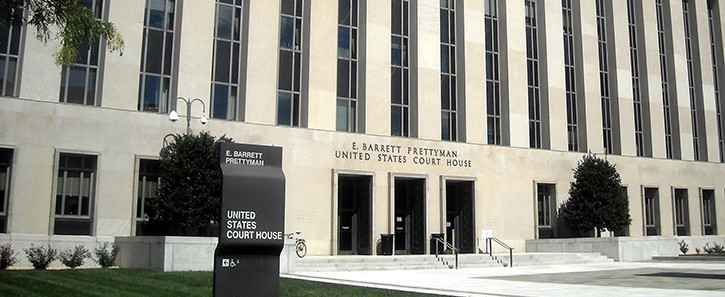

Judicial Watch: Ohio Federal Judge Sues Sixth Circuit Judicial Council and Judicial Misconduct and Disability Committee


Judge Adams: Social Security Claimants Waited Years for Rulings on Disability Benefits; Court Misspent Tax Dollars
(Washington, DC) — Judicial Watch has filed a lawsuit in the United States District Court for the District of Columbia on behalf of Akron, Ohio-based federal judge John R. Adams, who recently was the subject of an unprecedented and entirely unwarranted ruling by a disciplinary panel. (The Hon. John R. Adams v. The Judicial Council of the Sixth Circuit, et al. (No. 1:17-cv-01894)).
An August 14, 2017 decision by a review panel of the Washington-based Judicial Conference upheld an administrative ruling by the Sixth Circuit Judicial Council finding that Judge Adams committed misconduct by issuing an order requiring a magistrate judge to explain, on pain of sanctions, why he had missed a deadline in a Social Security benefits case. Judge Adams had long been concerned about the productivity and supervision of his court’s magistrates and the timeliness of their decisions, particularly in Social Security cases. To reduce delays in such cases, he began issuing orders setting deadlines for magistrates’ “reports and recommendations” – the magistrates’ reports on how a judge should rule.
The magistrates resisted Judge Adams’ efforts to speed up the process and, when one magistrate missed a deadline, Judge Adams demanded an explanation. After the magistrate cited a simple calendaring error, Judge Adams accepted this explanation and cancelled his order.
But some of Judge Adams’ colleagues on the Ohio federal district court filed an ethics complaint claiming that Judge Adams’ deadlines caused the magistrates to give priority to his cases over theirs. As a result, Judge Adams was subjected to a years-long ethics investigation so vengeful and vitriolic that even his mental health was questioned. Despite the complete absence of any medical evidence suggesting he suffers from a mental disability, Judge Adams was ordered to undergo a psychiatric examination, including a three-hour battery of psychological testing. When he objected, he was accused of not cooperating with the investigation.
Judge Adams tried to accommodate the investigation by voluntarily undergoing examinations by two, separate, board certified psychiatrists and a psychologist and submitting the reports of these examinations to the investigators. The reports concluded that Jude Adams does not suffer from any diagnosable mental disorder whatsoever. Judge Adams even offered to have one of the psychiatrists testify and be cross-examined at an April 2015 hearing. These reports and testimony were all rejected.
No case has ever decided whether a sitting federal judge can be compelled to undergo a psychiatric examination, but the August 14 decision nonetheless held it was misconduct for Judge Adams to object to this unprecedented demand. It also ordered him to endure two years of monitoring by a judicial committee, and threatened to reassign his current case load and ban him from being assigned new cases if he does not submit. Judge Adams’ September 14 complaint asserts that these actions not only are unwarranted, but violate U.S. Constitution and threaten judicial independence.
As Judicial Watch sets forth in the September 14 complaint:
No claim or concern was made or raised at the April 2015 hearing that Judge Adams does not or cannot maintain his full docket of cases or is unable to make rulings. As one of the complainants acknowledged in his testimony at the hearing, “That’s not involved here . . . his handling of his docket has been appropriate.” Another judge testified that Judge Adams is “a very bright judge. He writes very good opinions.”
In addition to his efforts to ensure timely processing of Social Security appeals, Judge Adams also has spoken out numerous times about the Ohio federal district court’s wasteful use of taxpayer dollars, such as spending of thousands of dollars to purchase iPads for judges and other court staff while simultaneously threatening cutbacks and furloughs for essential staff, such as probation officers. He also questioned reimbursing judges for travel expenses incurred attending ceremonial portrait unveilings of their colleagues.
“I am deeply disappointed with my colleagues’ decision. This case is not about my mental health, but about my efforts to improve court administration. I presented overwhelming evidence of my sound mental health, but the panel refused to consider it,” said Judge Adams
“Judge Adams is a fine jurist committed to the highest standards of judicial ethics and has served with distinction for over 14 years,” said Judicial Watch President Tom Fitton. “This was not an investigation, it was a hazing. Judge Adams looks forward to restoring both his good name and the integrity of the judicial ethics process.”
###














